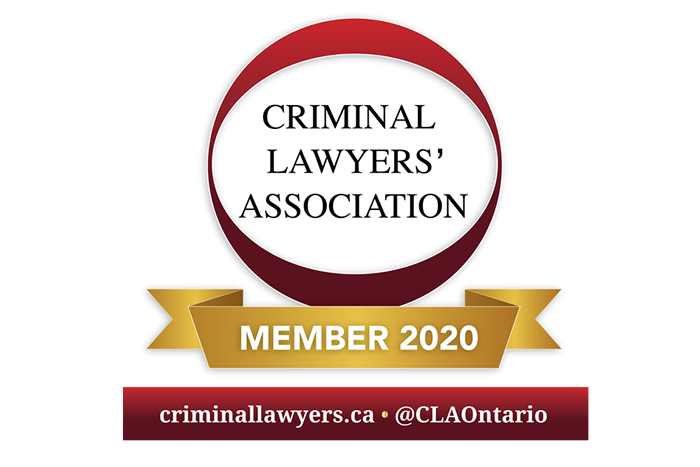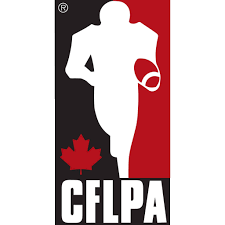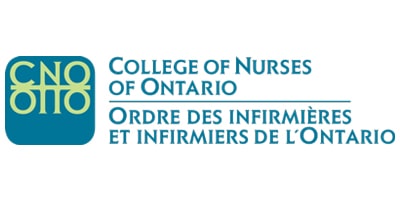EFFECTIVE ADVOCACY WHEN YOU NEED IT MOST
It might be one of the worst days of your life . . . maybe the worst.
Allegations have been made. Law enforcement is involved. Maybe it's the first time; you have never imagined yourself in this situation. Maybe you've been here before and wonder how you can make it through without losing it all.
The police may not like you because you failed the "attitude test". They've done about all the investigating that they're going to do. Casually they say, "Let the judge decide". Or worse, tunnel vision has taken hold and their objectivity is gone. They are convinced you are guilty and it feels like they will do anything to prove it.
The prosecutor's office looks at your file and quickly concludes you deserve no breaks. It is committed to seeing you in jail until your trial and beyond. It can't seem to get past your history of past offences or the serious nature of the charges. In its eyes you are convictions on a criminal record; accusations on a police report.
But the strain on your employment, the tension in your family life, and every other stressor triggered by being in the criminal justice system are all leading to something: your ultimate day in court. The witnesses are present. The prosecution team is ready. The judge takes her place in the courtroom.
When the charges are laid, when the authorities have taken hold of your case, and when the day of decision arrives, your needs are clear: A persuasive plan for a bail, a determined approach to the prosecution's evidence, thoughtful consideration of the real impact of the justice system in your life, comprehensive but focused legal analysis, a strong mode of communication to voice your interests, skilled presentation of your case in the courtroom, and a motivated, insightful and prepared representative who cares about your rights and the results.
Your needs are clear.
Choose a criminal defense lawyer who is ready and able to meet them.
Choose Wildman at Law, an effective advocate when you need one most.
WILDMAN DOES
What Can Wildman Do For You? Wildman at Law helps people with critical matters including:
Criminal Law
All stages in the full-range of criminal matters, including extremely serious, sensitive and complex cases
- Bail hearings
- Trials and related applications and motions
- Research and opinions
- Appeals
Administrative Law
- Police complaints
- Research and opinions
- Academic misconduct and student discipline
- Conduct hearings for federal and provincial inmates
- Landlord and tenant and co-operative housing disputes
- Ontario Review Board matters involving mental health
- Professional discipline in health care and other regulated work
- Other matters related to government tribunals, boards and decision makers
Sports Law
- Athlete discipline hearings - eligibility, suspensions, doping
- Athlete representation, including registered agent services for the Canadian Football League
- Research, investigation and advocacy for individuals and professional or amateur sports organizations
WILDMAN IS
Wildman-at-Law is L. Kurt Wildman, Barrister-at-Law.
A member of the Law Society of Ontario since 1999 and the College of Nurses Ontario since 1996, Kurt is a lawyer and a registered practical nurse. Since 1999, he has been a registered player agent with the Canadian Football League Players’ Association.
Kurt graduated from Osgoode Hall Law School after completing a diploma in Practical Nursing at George Brown College and a Bachelor of Science degree in Biological Sciences and Economics at the University of Toronto. His continuing education has included completing course work with West Virginia University in forensic science.
After law school, Kurt articled with Gilbertson, Davis, Herceg, Emerson (now Gilbertson, Davis LLP), a boutique litigation firm. After his call to the Bar, he worked as an associate for John L. Hill, Barrister and Solicitor.
Mr. Hill, an expert in corrections and criminal law, gave Kurt the chance to start his career in criminal, administrative and civil litigation. Within his first year of practice, Kurt had full responsibility for serious cases and did trials in the Superior Court of Justice.
Kurt’s defence work continued as a criminal duty counsel in the Ontario Court of Justice, frequently arguing multiple successful contested bail hearings in a day’s work inside the province’s most active bail courts at Old City Hall, 1000 Finch, Scarborough and College Park. Later, he returned to private practice with Hinkson, Sachak, McLeod.
Since 2002, Kurt has worked as a sole practice lawyer, effectively defending criminal charges ranging from causing a disturbance to first-degree murder. He adjudicated rental housing issues as a part-time member of the Landlord and Tenant Board. Now, he adjudicates as a member of the Property Standards Committee for the City of Oshawa, a first-level tribunal for appeals under the Building Code and related by-laws.
In addition to his litigation and adjudication, Kurt taught criminal law, provincial offences and professional responsibility courses in an accredited paralegal studies program. He currently tutors lawyer and paralegal licensing candidates in criminal/quasi-criminal law and public/administrative law for the Law Society of Ontario’s tutoring program.
He is a member of the Criminal Lawyers' Association, the Sports Lawyers Association, the Durham Region Law Association, and the Osgoode Society for Canadian Legal History. He is a past board member and current volunteer with FoodShare (Toronto), a basketball coach with Basketball Basics, and an ageing veteran on the “Young Offenders” football team in the TLFL.
WILDMAN WORKS
Wildman-at-Law cannot guarantee the outcome of any case.
But, make no mistake. Clients can always expect candid communication and an open, undisguised view of the “pros and cons” of their cases and the probable results, based on sufficient facts and the applicable law.
Wildman-at-Law will work diligently on your case with skill, experience and judgment. The firm will always aim for optimal results and will not run away from difficult or unpopular cases or the responsible efforts needed in those situations. Still, the practical impact of options available and choices made will not be forgotten. The difficult road a client may have travelled in life will be recognized.
Whether the stakes involve life in prison or a peace bond when a case is dropped, you will not be judged or shamed for any accusation or proven fact. Your financial status, race and ethnicity, sexual orientation, faith-group or absence of faith, nationality, sex, gender or other parts of your identity will not change the commitment to fearlessly and honorably defend you.
Brief summaries of a selection of Wildman-at-Law’s past work can provide a sense of the challenges taken, the creativity and efforts employed, and the experience gained.
Central East Region
Charges: Robbery with a Firearm, Aggravated Assault, Wear Disguise Intending to Commit a Robbery, Use Firearm Intending to Commit a Robbery, Breaching a Weapons Prohibition Order
The case involved an alleged invasion of a residence, with a brutal assault on a couple with a large handgun and a conducted energy weapon [a “Taser”] by a group of people. The client allegedly had the gun. One alleged victim lost vital signs while in hospital.
A specialized unit gathered and the Crown used evidence from wiretaps, search warrants for residences, a listening probe (a “bug) inside a home, DNA analysis, phone records, cell phone tower data, the confession of a co-accused, co-accused testimony at trial and other techniques.
The client, who was from a very modest background, received bail after Wildman-at-Law created and implemented, as part of the bail plan, a unique, low-cost internet-enabled system of GPS tracking and security video monitoring that emphasized the role of the surety while enhancing the police’s bail compliance checking capabilities.
The client and one co-accused went to trial, arguing that the evidence did not identify them as the perpetrators. At trial, the Court found the client and the co-accused Not Guilty of all charges and ruled in favor of Wildman-at-Law’s argument, primarily based on flaws in the police’s statement-taking process, on erasing the value of another co-accused’s statement against the client.
Toronto Region
Charges: Sexual Assault, Unlawful/Forcible Confinement, Assault x2, Threatening x2, Violating Bail Order x2
The case involved intimate partners in a complex relationship alleging infidelity, jealousy and controlling behaviour. The client’s spouse alleged a variety of threats and assaults, including a claim the client tried to force her to have intercourse when he visited her at her home and that he dragged her on the floor while their son was nearby. The case occurred in the cultural environment of resurging social justice efforts against expecting stereotyped responses to sexual assault.
The client, a permanent resident at risk of deportation, later faced two additional charges for allegedly violating the bail conditions that prohibited him from having contact with his wife and attending her home. Despite these bail violation charges, Wildman-at-Law assisted the client in being released on bail again.
At trial, the Court acquitted the client of four of six charges, but found the client guilty of assault and sexual assault. He later pleaded guilty to one of the two bail violation charges.
Still, at sentencing after trial, because of vital facts revealed by Wildman-at-Law’s cross-examination and the effective use of supporting documents, case law and arguments, the Court sentenced the client to an Absolute Discharge for sexual assault, assault and failing to comply with bail. In response to Wildman-at-Law’s submissions, the Court also determined that the impact of barriers faced by African-Canadians should be a consideration in the appropriate sentence. The client avoided a conviction, preserved his status in Canada, escaped an employment barrier, and evaded the 15-month jail sentence the Crown wanted.
Central West Region
Charges: Persuading a Person into Prostitution, Unlawful/Forcible Confinement, Assault with a Weapon, Assault, Threaten Death, Theft Under $5000, Threatening an Animal, Dangerous Driving, Violating Bail Order
The case involved an alleged scheme by the client to bring another woman into Ontario from another province to sell sexual services. The complainant claimed that the client held her against her will in a basement, assaulted her with a knife and a bottle, and stole her vital identification.
The client, originally from Europe, faced significant personal challenges and picked up significant new charges in multiple new, separate cases in other locations, including accusations related to violating bail, risky driving and threatening.
With Wildman-at-Law’s assistance, the client obtained bail on the original case and all the others that arose afterward. The client took the case to a preliminary hearing where cross-examination committed the alleged victim to a helpful version of events and revealed a pattern of her dishonesty and dishonesty crimes.
In preparation for a meeting with a case managing judge and the assigned prosecutor, Wildman-at-Law made an uncommon presentation of the existing evidence showing the alleged victim’s record for and ongoing cases of dishonesty. Guided by Wildman-at-Law’s presentation, the Crown discovered a troubling pattern of dishonest criminal behavior in the alleged victim and decided to withdraw/drop all charges against the client. In addition, Wildman-at-Law handled the other unrelated cases picked up in other jurisdictions, and successfully negotiated with different Crown Attorneys to have all the other charges withdrawn too.
Toronto Region
Charges: Second-Degree Murder
The case involved an alleged shooting. The police and Crown claimed the client shot his girlfriend’s father in the father’s own home at close range and fled.
The police narrowed the focus to the client and did nothing significant to look at other potential suspects when it seemed reasonable to do that. The police tried to get a statement from the client but Wildman-at-Law attended the station with him and the client walked out without giving one, still a free person. The police, however, circled back a few days later and arrested the client without notice and tried again to get the client to give a statement and, in the process, ignore his lawyer’s advice. By trial time, the prosecution relied heavily on testimony from the deceased’s family and area residents, firearm-related forensics, comments the client made to his girlfriend after the shooting, and cell phone records.
At trial, Wildman-at-Law applied to the court for permission to point to other suspects and to use statements the deceased made before he died as evidence. Despite difficulties with those applications, Wildman-at-Law’s cross-examination allowed the jury to see many significant inconsistencies in the testimony of the deceased’s close relatives, who were in the immediate area of the shooting, and revealed significant proof that the client had no motive to commit the crime.
Working efficiently, Wildman-at-Law facilitated completion of the trial in two weeks rather than the scheduled four, on the way to a Not Guilty verdict on the original charge of second-degree murder and a Not Guilty verdict to manslaughter, an alternative given to the jury.
Toronto Region
Charges: Theft Under $5000 and Possession of Stolen Property Under $5000
The case involved a common accusation: shoplifting from a department store. But just because many people have faced this kind of case and, on the surface, it is not particularly dramatic, it does not mean it is insignificant.
The client in this case was a skilled worker from Asia who had only temporary status in Canada, and was stationed for work in another Western country. They had been dealing with some challenging personal difficulties and the charges represented a real threat to their immigration status in multiple countries, their current employment, and their future career prospects.
Wildman-at-Law negotiated a resolution that resulted in all charges being withdrawn/dropped without the need for a formal court-approved diversion program. The outcome minimized the risk to the client’s current interests and future prospects.
WILDMAN SAYS
MURDER, GANG ASSOCIATION, GUNS, DRUGS: EVIDENCE
- Using Rhymes to Prove Crimes: Hip-Hop Lyrics as Evidence Against the Author in Criminal Prosecutions – Some Context*
- Using Rhymes to Prove Crimes: Obtaining Lyrics and Videos to Aid Prosecution
- Using Rhymes to Prove Crimes: “Murder Was the Case That They Gave Me”.…So Was Gun Possession, Drug Trafficking and Gang Association[1]
ROBBERY: IMMIGRATION CONSEQUENCES
DRINKING AND DRIVING: HOMICIDE
FRAUD OVER $5000: SPORTS BETTING
CRIMINAL JUSTICE: CANADA: POLICING: CARDING and STREET CHECKS
CRIMINAL JUSTICE: CANADA: POLICING: TAKING STATEMENTS
CRIMINAL JUSTICE: CANADA: POLICING: DNA SAMPLES
CRIMINAL JUSTICE: CANADA: POLITICAL PARTIES
CRIMINAL JUSTICE: CANADA: INCARCERATION: RACE
CRIMINAL JUSTICE: U.S.A.
ASSAULT: FAMILY VIOLENCE
ASSAULT: CHILD ABUSE: CORPORAL PUNISHMENT
ASSAULT: SEXUAL ASSAULT: TRIALS
PROVINCIAL OFFENCES: COVID-19 EMERGENCY ORDERS: ENFORCEMENT
PROVINCIAL OFFENCES: HIGHWAY AND TRAFFIC OFFENCES: DEVICES
ADMINISTRATIVE LAW: FAIR PROCEDURES: SPORTS
CRIMINAL RECORD: RECORD SUSPENSIONS or “PARDONS”
WILDMAN SUGGESTS
CONTACT WILDMAN
- 100 Consilium Place, Suite 200
Toronto, Ontario M1H 3E3






